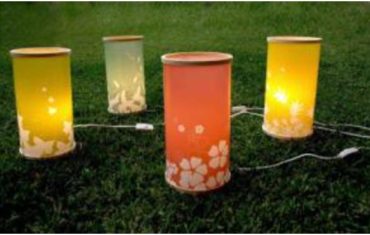With Christmas just around the corner, financial insecurity is weighing heavily on Australians. Toluna’s latest Global Barometer shows Australians are concerned about being able to afford Christmas this year, with many planning to do their Christmas shopping on credit.
Sej Patel, country director, Toluna, Australia & New Zealand says there is no doubt Christmas 2020 is going to look very different than previous years.
“Shoppers are concerned about their personal finances and as such, plan to spend less this Christmas,” he explains.
“With price the key motivator, more shoppers will be looking for bargains and expect retailers to be offering great deals this year.”
Indeed, Australians are feeling the pinch, with 44 per cent of respondents saying they’re financially worse off this year. Due to this, almost half (46 per cent) are stating they plan to use credit to pay for their Christmas shopping.
Typically, 13 per cent of respondents would put their entire Christmas shop on credit, while 44 per cent would normally do a mix of both credit and savings.
With 23 per cent of respondents concerned about whether they can even afford Christmas this year, Aussies are planning to cut back on spending over the festive season.
Compared with last year:
● 32 per cent plan to cut down the amount spent on gifts
● 35 per cent planning to spend less on Christmas social events
● 27 per cent plan to spend less on food for the Christmas holiday season
● 24 per cent looking to spend less during pre-season sales; and 29 per cent wanting to spend less on sales across the season
For those looking to spend less on gifts, exactly half (50 per cent) cited financial insecurity due to Covid-19 as the reason.
When it comes to gift shopping:
● 51 per cent base their gift choices on price or finding a good deal
● While only a quarter (26 per cent) choose gifts based on sentimental reasons or finding ‘the perfect’ gift
● 13 per cent do their gift shopping based on convenience
Other changes to Christmas gift purchases this year include:
● A quarter (25 per cent) are buying Xmas gifts earlier this year
● 37 per cent plan to do their Christmas shopping in November; 12 per cent want it completed in October, while 28 per cent will wait till December (and five per cent expect to leave it to the last minute)
● 30 per cent are doing more of their gift shopping online this year
● 43 per cent are being more selective about who they buy gifts for this year
“Australians are savvy consumers and they’ve learned their lessons from the supermarket shortages earlier this year. They know there’s a real chance of stock running low, so they’re looking to get started on their Christmas shopping earlier and plan to do more of this shopping online.
“Retailers should take note of consumers’ willingness to get started on Christmas shopping now and know that they’re already looking for bargains. Additionally, retailers who offer flexible payment options such as store credit, Afterpay and laybuy will likely have an advantage,” Patel adds.
Australians can expect to see gift cards under the tree on Christmas day, with 44 per cent of Australians planning to buy gift cards for at least one of their loved ones. Other popular gift categories include:
● fashion or clothing (31 per cent)
● fragrances (4 per cent)
● jewellery (21 per cent)
● cosmetics & beauty (21 per cent)
● gadgets ie smartphones, smart watches, etc (18 per cent)
Christmas in 2020 will be unlike no other and shoppers expect to see changes in store this year:
● 38 per cent expect to see more deals and discounts, with 23 per cent expecting big discounts on electrical items
● 36 per cent expect to see fewer people shopping in store
● 29 per cent predict items will be sold out quicker due to more people shopping online
● 21 per cent are expecting to see more innovation from retailers such as virtual shopping spaces and voice activated shopping
“Of course, consumer sentiment changes greatly as the pandemic progresses, so it’s important for businesses to monitor evolving consumer perceptions and habits and adjust their services accordingly,” says Patel.







